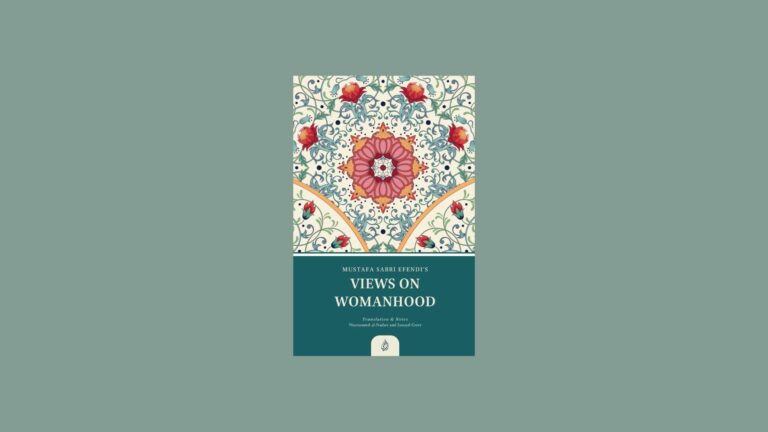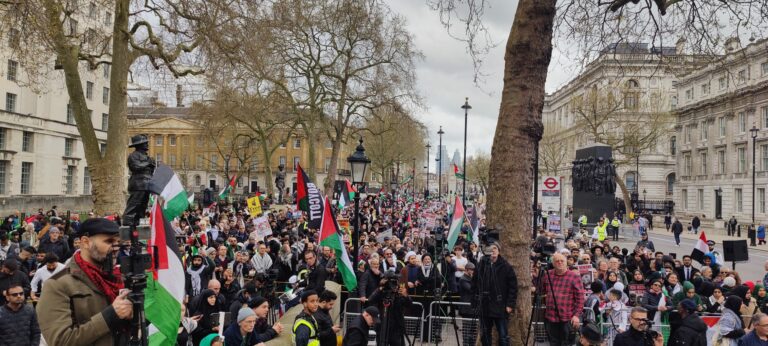Briefing: The Killing in Kashmir and the Terrorism Act 2000
29th December 2000
- Mohammed Bilal and the Crisis in Kashmir
- Disparity in British Government Policy
- Flaws of the Terrorism Act 2000
1. Mohammed Bilal and the Crisis in Kashmir
A suicide bomber carried out a car bomb attack on Christmas Day in Srinagar in Indian-occupied Kashmir, killing 10 people including six Indian soldiers and three Kashmiri students. According to the BBC (28 December), the suicide bomber is rumoured to have been named Mohammed Bilal, a 24 year old former student from the English city of Birmingham. However, a British connection to the attack has not yet been established and British officials have yet to confirm the bomber’s actual identity.
The unconfirmed rumours of a British connection have generated renewed pressure on the British Government to crack down on “extremist groups” that allegedly use Britain as a safe haven for raising funds, recruiting and training members for operations abroad. Muslims are to be the key targets of the crack down, which falls under the provisions contained in the Terrorism Act 2000 to be enforced in January. The Act will lend police and the Home Secretary far wider scope to clamp down on groups operating in Britain alleged to be supporting terrorism abroad.
As is usually the case with events involving Muslims, there is a danger that this particularly occurrence may result in the demonisation of Muslims in Britain. So far, the image of Muslims as militant fanatics intent on carrying out acts of terrorism is reinforced by the Government and the press – the solution to violence in Kashmir is seen to be a crack down on alleged “extremist groups” in Britain who may have links with the Muslim resistance in Kashmir. It is essential, if we wish to genuinely comprehend the crisis in Kashmir and thereby solve the region’s most difficult problems, to take note of the role of the Indian Army.
For four decades, India has been suppressing the people by illegal use of force, arbitrary detention in prison or interrogation centres and so on. Since 1989, an estimated 40,000 Kashmiris have been killed by the Indian forces stationed in Kashmir. An estimated one million women have either suffered from bereavement or been tortured, beaten or killed; many hundreds have been subjected to barbaric sexual assaults by members of the Indian Army.
Indian “government troops and their agents have been cited in the majority of the atrocities committed in Kashmir”, according to Surinder Singh Oberio. Human rights organisations have highlighted incidents in which troops have wantonly killed militants or their sympathizers. In fact, Amnesty International has stated that “torture by security forces is a daily routine and so brutal that hundreds have died as a result.” Amnesty warns that “the entire civilian population is at risk. Torture includes beatings and electric shocks, hanging people upside down for many hours, crushing their legs with heavy rollers, and burning parts of their bodies.”
It is a matter of record that the Indian forces, stationed in Kashmir, have been given a free hand to kill any person they choose. These powers have been given to them under draconian laws such as the Disturbed Areas Act and the Indian Armed Forces Act, both of 1990. Indifference shown by the international community to the plight of Kashmir – as with the plight of Palestine – has encouraged and given a free hand to the Indian armed forces, to deal with the occupied population as they wish. The Indian Government now has more than 700,000 troops in the valley.
India, moreover, is illegally occupying the region of Kashmir. The International Commission of Jurists (ICJ), based in Geneva, recently passed a resolution proclaiming Kashmir’s accession to India as null and void. The ICJ went further by condemning the human rights violations in Kashmir. Both India and Pakistan accepted the UN resolutions of January 1948 calling for a plebiscite in Kashmir to exercise the indigenous population’s right of self-determination. However, attempts to hold a plebiscite have been met with fierce opposition from India – India has known, right from the start, that the result of a plebiscite is a foregone conclusion: the population of Kashmir would have voted to rid themselves of India’s brutal occupation. This has been the case from 26th October 1947 to the present day. The Hindustan Times admitted: “In the Kashmir People’s Convention held in Srinagar in the summer of 1970, but for a few feeble voices in our [India’s] favour, most of the delegates favoured either accession to Pakistan or creation of an independent Kashmir.”
2. Disparity In British Government Policy
The occupying Indian Army that is responsible for systematic acts of terrorism against Muslims in Kashmir who make up the majority of the population, is in receipt of military support by the same British Government which is now supposedly considering measures to “crack down” on the causes of terrorism.
Agence France Press (AFP) reports that, “The backbone of India’s air force” includes, among arms from other countries, “a few squadrons of Jaguar bomber jets from Britain.” According to a top defence official, the Indian Air Force has formally placed an order for 24 fighter jets from British Aerospace (BAe) and is currently in talks to buy a total of 66 planes from the company. Defence Minister George Fernandas was quoted as saying that “something would be finalised before the year is through.” The 66 Hawks are expected to cost India around 1.6 billion dollars. Although India has also been looking into deals with other countries, a Western military attache in New Delhi said he expected the advanced jet trainer deal to go to British Aerospace: “My understanding is… that it’s their preferred choice.” Jane’s Defence Weekly similarly quoted official sources as saying that around 60 billion rupees ($1.38 billion) had been sanctioned for the advanced jet trainers. The journal confirmed that 24 Hawks were to be delivered immediately and a similar number over the following two years. The British Hawks are for use in India’s brutal occupation of Kashmir – Reuters reported that “India’s air chief” said as early as August last year “that the recent conflict in Kashmir had strongly underlined the need for the air force to be ‘at the pinnacle of its readiness’.” It thus appears that the British Government will be supporting acts of terrorism perpetrated by the Indian Army in occupied Kashmir.
While there has remained a rather stark absence of pressure on the Government to sever all military ties with the Indian regime despite its responsibility for the majority of atrocities against Kashmiris, in the wake of the recent suicide bombing there is already mounting pressure on the Government to take measures in relation to the Kashmir issue by cracking down on UK-based Muslim groups, alleged to be supporting the indigenous Kashmiri resistance. It is nevertheless clear that if the Government genuinely wishes to contribute to the reduction of terrorism and violence in Kashmir, it would be far more appropriate to sever all military ties with India. Indeed, there would be no militant Muslim resistance responsible for acts of terror in Kashmir if it was not for the brutal occupation of the Indian Army.
The Islamic Human Rights Commission (IHRC) is concerned that the recent bombing, along with the pressure to crack down on alleged “extremist groups,” will result in the further criminalisation of the already demonised Muslim community in Britain. Although the identity of the suicide bomber and his rumoured British connection has not yet been confirmed, there has already been talk of renewed efforts to target Muslims in the UK. The Indian Government hopes that the Muslim resistance against India’s illegal occupation of Kashmir and its alleged support groups among Pakistani and Kashmiri expatriates in Britain, will fall foul of the new anti-terrorism legislation. An Indian source remarked: “We are hopeful that soon it will be tougher for the terrorist groups to operate here and that extraditions will be applied more forcefully.”
Indeed, it appears that to discern the facts related to the recent suicide bombing, the British Government will be relying uncritically on biased information produced by the Indian authorities currently occupying Kashmir in conflict with indigenous sentiments. Richard Beeston, the Diplomatic Editor for the London Times, reported: “The Indian authorities are expected to forward details to British officials about the suicide car bomb attack on Christmas Day in Srinagar. If a British connection to the attack can be established, then the Government will be expected to take action.” Indeed, one Indian official is quoted as follows: “There is a fair amount of co-operation with British officials and as soon as the facts are established about who carried out this attack and which group was responsible we will bring it to their attention.”
The disparity in the Government’s attitude toward the case of the British Muslim Mohammed Bilal – which is as yet based only on unconfirmed reports from Indian authorities – and other non-Muslim British nationals, is highlighted by the example of Israel. It is well known that a large number of British nationals have taken up the option of serving in the Israeli Defence Forces (IDF). In this connection, the cold-blooded murder of the Palestinian child, Muhammad Al-Durrah, could easily have been committed by a British national serving with the IDF.
Since the end of September, over 10,000 Palestinians have been seriously injured and over 300 shot dead by Israeli forces in occupied Palestine, nearly half of whom have been children under 18. Indeed, it is likely that a substantial number of the over 10,000 Palestinians killed and injured in the occupied territories were war crimes committed by British members of the IDF. Yet the British Government has remained decidedly silent about the groups based in Britain facilitating such support of the Israeli military. Under the provisions of the new anti-terrorism legislation, these groups are supporting terrorism abroad and should be disbanded.
3. Flaws of the Terrorism Act 2000
IHRC is particularly worried that due to the very broad and vague terms of the new anti-terrorism legislation, it will result in the abuse of the human, social and civil rights of British citizens, particularly British Muslims. As the National Council for Civil Liberties (Liberty) reports, under the Terrorism Act 2000 people who are merely “suspected of ‘terrorist’ offences would therefore have fewer rights than other criminals.” Suspects who are allegedly “motivated by political or religious factors when committing a crime will have fewer rights than a person who assaults another for revenge or greed.” The definition of terrorism is so widely drawn, points out Liberty, that the Act “will mean that if you intend to destroy GM for reasons of conscience you would have less rights than a person who was involved in the deliberate assault and robbery of a vulnerable person.” Indeed, Liberty points out that the Act “means that had you, for example, been an exiled supporter of Nelson Mandela who publicly supported the armed struggle in South Africa, you would be considered a terrorist.”
In particular clauses 57, 58 and 59 “make it an offence to support by words alone an armed struggle in a country outside the United Kingdom”, which may lead to “unnecessary and possibly one-sided investigation and evaluation of groups in other countries.” Liberty goes on to note that such investigation “will often be brought about by political forces such as overseas governments complaining about the tactics of pressure groups and government opponents based in this country.” British authorities would have to merely assume the “integrity of overseas governments and agencies without proper safeguards” – as the Government appears to be doing in the case of Mohammad Bilal. Indeed, like IHRC, “Liberty is concerned that those who support struggles for human rights and democracy in other countries may find themselves under investigation by the police.”
The Act will also “potentially be in breach of the European Convention on Human Rights” by allowing suspects to be assumed guilty, so that “they would have to prove [they are] innocent.” “Rather than it being up to the prosecution to prove guilt, the defendant has to prove their innocence”, thus increasing the chances of a wrongful conviction. Liberty points out the Act will even “prevent people from exercising their right to free speech”, by making it “an offense to support by words alone an armed struggle in a country outside the UK. Those who support struggles from human rights and democracy in other countries may find themselves under investigation by the police.” In the words of Lord Williams of Mostyn QC in 1994, then Labour Home Affairs Minister spokesman in the House of Lords, “if we condemn our citizens to the possibility of 10 years imprisonment on the basis of reasonable suspicion… we are in serious danger of giving terrorism a victory that it would not otherwise achieve.”
In this regard, the Times admits that Middle East dictatorships, “particularly Saudi Arabia, Yemen and Egypt, have in the past accused the British of allowing suspected terrorists to operate freely in London and other English cities. In most cases, the exiled militants claim to be innocent opposition figures driven out of their countries by authoritarian regimes who refuse to accept any religious or political dissent at home.” IHRC can confirm several cases where this has, indeed, been the case.
In the final analysis then, a Muslim who thus simply voices support for the Muslim resistance in occupied Kashmir or occupied Palestine, is liable to be stigmatised as a terrorist who should be convicted as a criminal.
IHRC therefore calls on the British Government to act with caution in regard to the case of Mohammed Bilal, and refrain from allowing the case to result in the demonisation of Muslims in Britian and abroad. Regardless of the conclusions of the case, the fact remains that the Government has chosen to ignore British nationals violating the new anti-terrorism legislation by joining and supporting the IDF, which has been committing war crimes in occupied Palestine for over 50 years. Even apart from the inherent flaws of the new anti-terrorism legislation, the Government should remain consistent and fair in its measures against terrorism. Currently, it seems that the new legislation is being used as a legal pretext to support illegally occupying regimes.






